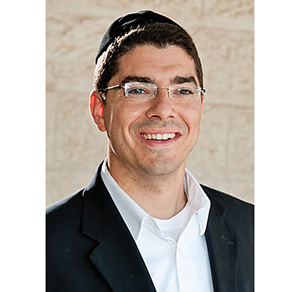
Finally we have an opportunity for some clarity on a murky topic that affects all of us at some time in our lives. For years and even decades, I (and many others) have been searching for some authoritative guidance about kashrut in Israel. We have all heard that the Israel kashrut scene is a complex issue surrounded by considerable controversy, but we have not quite been able to get a clear grasp of the situation and how to manage it. Finally, Rav Aryeh Leibowitz of Yeshivat Shaalvim, whose parents Rhonda and Marty Lebowitz are neighbors and affiliate members of Congregation Shaarei Orah, the Sephardic Congregation of Teaneck, has recorded a shiur where he presents a candid, straightforward and balanced view of the situation https://www.yutorah.org/lectures/lecture.cfm/917990/rabbi-aryeh-leibowitz/rabbanut-mehadrin-or-bedatz-an-introduction-to-kashrus-in-israel/.
Rav Leibowitz sets forth that which is fairly well known: The Rabbanut Regilah, or base-level kashrut service provided by the State of Israel Chief Rabbinate, on the one hand exceeds the kashrut standards of the OU in a few areas, but on the other hand significantly lags behind it regarding many others. It is stricter in regards to chadash and chalav Yisrael. However, Rav Leibowitz states that Rabbanut Regilah often accept the opinions that accept gelatin from non-kosher sources and non-glatt meat, which the OU long ago rejected. Moreover, he states that the frequency of inspections of the supervised facilities also is often far less than what is the norm at OU-supervised situations. These are just some of the gaps between their respective levels of kashrut (other issues include inspection for small insects, bishul akum, challah, terumot and ma’aserot).
Rav Leibowitz explains that he does not intend to impugne the Rabbanut. In fact, the Rabbanut is coming from a very well-meaning and even beautiful place. Israeli Jews differ dramatically from American Jews. The vast majority of Israeli Jews, Rav Leibowitz explains, prefer to observe at least a basic level of kashrut if it is not difficult. Thus, the Rabbanut seeks to maximize basic kashrut observance by making basic-level kashrut available to the widest audience possible. They do this, to a great extent, by relaxing the standards.
The American kashrut audience in North America, by contrast, is for the most part fully observant Orthodox Jews who wish to abide by considerably more than minimal standards. Thus, the OU and other comparable kashrut agencies certify products and services at a much higher standard.
American Orthodox Jews, Rav Leibowitz explains, often think of Israel as a place where kosher food is abundant and available with ease almost everywhere. While to a certain extent this is true, a much more sophisticated and discerning approach is in order. Thus, Rav Leibowitz recommends, as do most Orthodox rabbis, that in Israel one limit their eating to stores certified by either Rabbanut Mehadrin or a respected private kashrut provider.
Even the term Badatz, he explains, is subject to a multitude of standards. Badatz is an acronym of Beit Din Tzedek. While this term is often associated with the Badatz of Jerusalem’s Edah Hacharedit, in reality any private organization can call themselves Badatz. Thus, when told that a service is certified by Badatz, the question one needs to ask is what Badatz. Respected Badatzes include, in addition to that of the Edah Hacharedit of Jerusalem, the Badatz of Rav Mahpood, the Badatz of Rav Landau and the Badatz of Rav Rubin. Rav Leibowitz referred to the website https://www.kosharot.co.il/ as a respected resource in regard to sorting through the maze of kashrut organizations in Israel.
One point to clarify: Every once in a while one hears the claim “kosher is kosher; either it is kosher or not.” However, as anyone with even a basic level of knowledge knows, it is not at all that rudimentary. Such a claim is comparable to saying “either it is car or it is not a car.” Anyone with any level of familiarity with the car market knows that there is an enormous variety of levels of automotive quality. We all know better than to say “either he is a doctor or he is not a doctor.” We should apply at least the same level of sophistication in regard to kashrut, especially in Israel.
Bottom line, all readers are urged to arm themselves with the information Rav Leibowitz provides at https://www.yutorah.org/lectures/lecture.cfm/917990/rabbi-aryeh-leibowitz/rabbanut-mehadrin-or-bedatz-an-introduction-to-kashrus-in-israel/. Once armed with this information, have a discussion with your family rabbi who can best tailor the information to meet your family’s needs. After all, the best kashrut consumer is an informed kashrut consumer, especially in regard to Israeli kashrut.
By Rabbi Haim Jachter
Rabbi Haim Jachter is the spiritual leader of Congregation Shaarei Orah, the Sephardic Congregation of Teaneck. He also serves as a rebbe at Torah Academy of Bergen County and a dayan on the Beth Din of Elizabeth.









